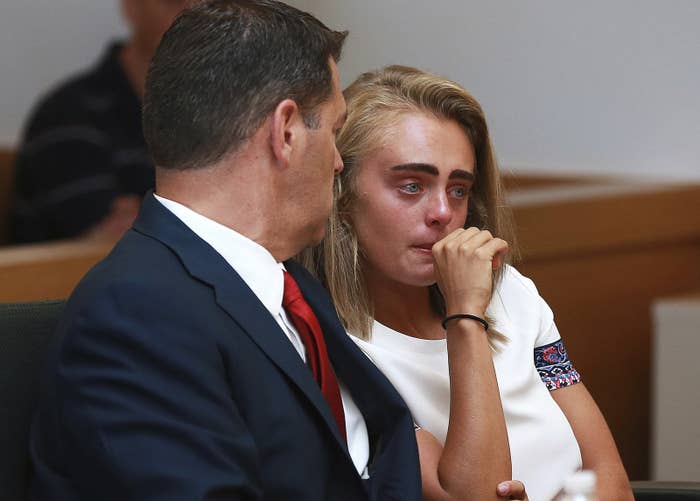
Michelle Carter, the young woman convicted of involuntary manslaughter after she sent text messages to her boyfriend urging him to kill himself, was sentenced to 2 and a half years in prison Thursday.
Carter, 20, was found guilty in June of encouraging her 18-year-old boyfriend, Conrad Roy, to take his own life three years ago.
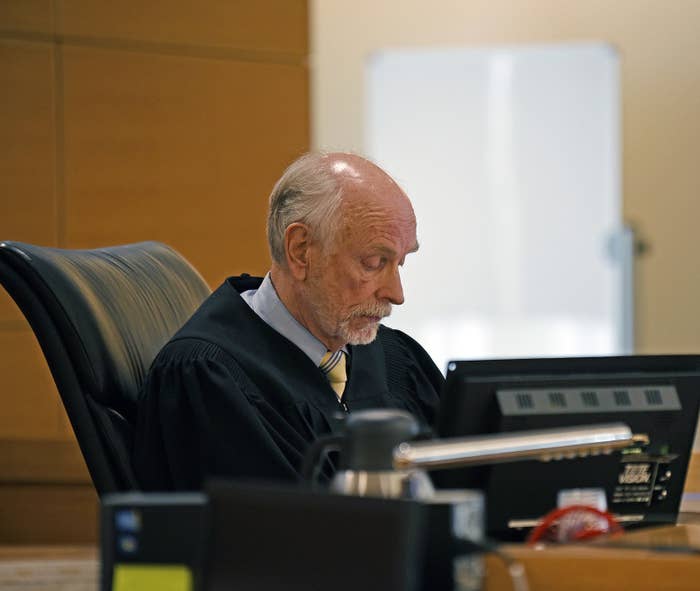
Roy killed himself on July 12, 2014, by inhaling carbon monoxide produced by a water pump in his truck. The teen — who had a history of mental illness and had previously attempted suicide — got out of the truck because he was "scared," but Carter urged him to "get back in," according to text messages she exchanged with her friends.
Carter won't begin her prison sentence until all state appeals have been exhausted, however, after Judge Lawrence Moniz granted her defense lawyer's motion to stay her incarceration until the appeals move through the Massachusetts court system.
If she does serve prison time, she will likely serve 15 months in jail with the rest of the sentence suspended until Aug. 1, 2022, Moniz ruled.
The sentence was far lighter than what prosecutors hoped for. During Thursday's hearing, they asked Moniz to sentence Carter to seven to 12 years in prison. Carter's defense requested that she receive no jail time and five years supervised probation under various conditions, including mental health counseling.
In his decision, Moniz said that he did not find Carter's age, her level of maturity, or mental illness to have "any significant impact on her actions." However, he added that her age "offers a greater chance of rehabilitation."
He also emphasized the need to balance rehabilitation with punishment for her actions.
The judge ordered Carter not to have any contact with Roy's family members or some of her high school friends who testified against her during the trial, as part of her probation terms.
He also directed her not to profit in any way from the events of the case, suggesting that she could not sign any movie or book deals.
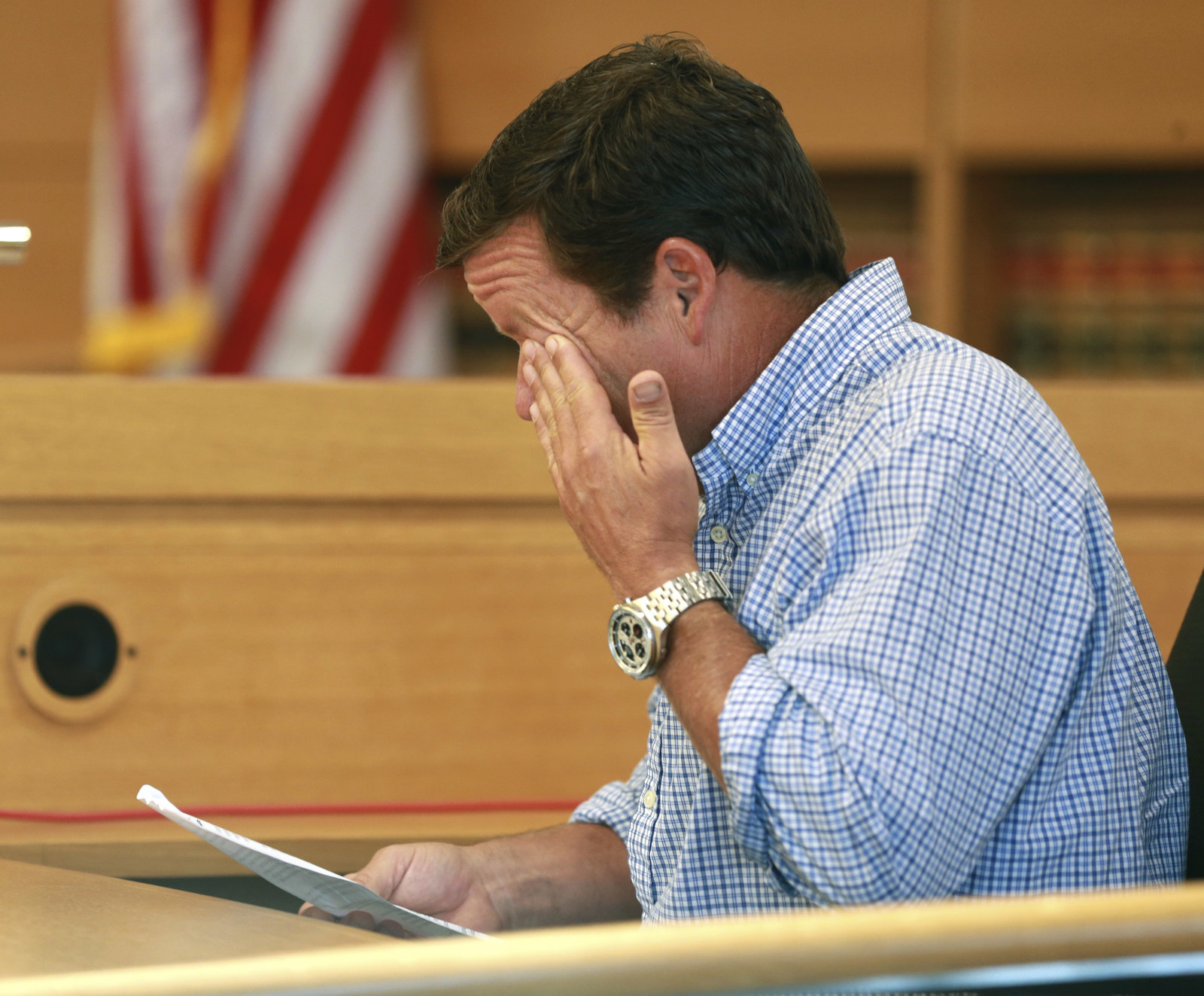
Roy's grieving family members blamed Carter for his death in statements they read out in court before the judge delivered his sentence on Thursday.
"How could Michelle Carter behave so viciously to encourage my son to end his life," Conrad Roy Jr. told the court.
"Where was her humanity?"
He said that Carter had not shown any remorse for her actions in Roy's death.
"She exploited my son's weaknesses and used him as a pawn in her own well-being," Roy's father said. "My son was my best friend."
He said his last words to his son were, "Coco, I love you."
Prosecutors read out a statement from Roy's mother, who was not present at the hearing.
"I pray a law comes forth so another mother does not have to endure what I am," her statement said. "I still cannot come to terms that another person would want to inflict so much pain on our family."
Carter's defense lawyer, Joseph Cataldo, said that she "regrets what happened" and had accepted responsibility for her actions in a letter to the probation department.
He emphasized on Carter's own history of mental health issues and eating disorders, telling the judge that she needed to be rehabilitated and not incarcerated.
"This sad, tragic manslaughter was a very unusual set of circumstances unique to these two individuals who were both struggling with mental health issues themselves," Cataldo said.
Delivering his verdict in June, Moniz said that Carter's actions constituted "wanton and reckless conduct" when she instructed Roy to get back in his truck despite knowing that it was a toxic environment "inconsistent with human life." He said that her conduct caused Roy's death.
Carter, who was 17 at the time of Roy's death, was charged as a youthful offender, making her eligible for adult-level sentencing, as per the state law.
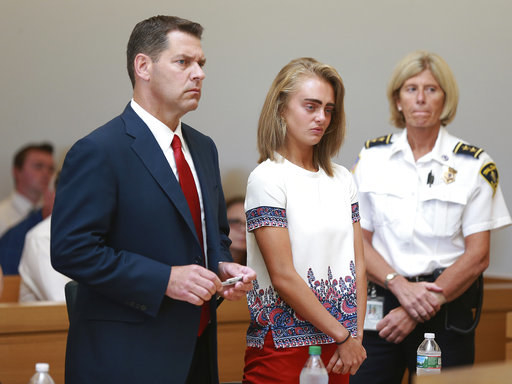
Legal experts believe her conviction stands a good chance of being overturned on appeal.
Daniel Medwed, a professor of law and criminal justice at Northeastern University School of Law, told BuzzFeed News on Tuesday that there's a "fairly good chance" the conviction could be reversed on appeal "based on causation," in that Carter didn't directly cause Roy's death — he caused his own death. "It was his decision, which broke the connection between her behavior and the result," Medwed said.
"What Carter did was abhorrent and atrocious but I'm not sure it was manslaughter," Medwed added. "The conviction is vulnerable on appeal."
He said the best solution would be for the Massachusetts legislature to create a law that would criminalize coerced suicide in the state.
Legal experts, including Medwed, predicted that Carter would not face the maximum sentence of 20 years in prison.
Before Thursday's hearing, Medwed said he "strongly believed" Moniz would sentence Carter to prison — but not the full term. During the trial, he said, the judge "could barely conceal his disdain for her when he rendered the verdict."
Moniz might favor leniency in the prison term, he said, given Carter's relative youth at the time of the incident, her documented history of mental health troubles, and evidence of taking antidepressants as presented by her defense lawyers during the trial.
"It would be wrong for the judge to give Ms. Carter the maximum sentence since he should consider not only the offense but also Ms. Carter's personal characteristics and moral culpability, taking into account that she was a juvenile with her own mental health struggles," Sharon Beckman, a Boston College Law School professor and director of the Boston College Innocence Program, told BuzzFeed News before the hearing.

At the trial, prosecutors showed the court numerous text messages between Carter and Roy to prove that she pressured Roy to kill himself, instructed him as to when and how to do it, assuaged his concerns over killing himself, and chastised him when he delayed doing so.
They argued that Carter used Roy as a "pawn in her sick game of life and death," and wanted to be "the grieving girlfriend" to gain her peers' attention and sympathy, which she always craved.
Carter's defense lawyers argued that Roy's suicide was his own choice, and that Carter was not present when he killed himself, and did not inflict physical harm on him. A controversial psychiatrist testified that Carter was "involuntary intoxicated" on antidepressants before Roy's suicide, which led her to become "grandiose" and "delusional."
While the judge did not give credence to the psychiatrist's contention in his verdict, it is likely he considered Carter's mental health issues and medication as mitigating factors in the sentencing, Medwed said.
One of Roy's aunts, Kim Bozzi, asked the judge to send her to prison for 20 years, according to a statement she was expected to read at the hearing, the Boston Herald reported on Wednesday.
"I believe she should be kept far away from society,” Bozzi wrote in the statement. "Take away the spotlight that she so desperately craves. Twenty years may seem extreme but it is still twenty more than Conrad will ever have."
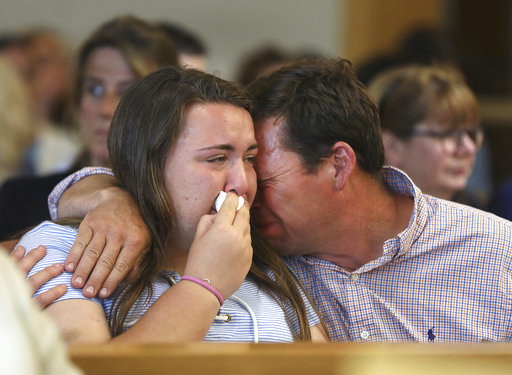
In a letter to Moniz, Carter's father, David Carter, pleaded with the judge for leniency and asked for her to be sentenced to probation and "continued counseling," the Herald reported.
"She will forever live with what she has done and I know will be a better person because of it," David Carter wrote in his letter. "I ask of you to invoke leniency in your decision-making process for my loving child Michelle."
He asked the judge to consider that his daughter was a "troubled, vulnerable teenager in an extremely difficult situation," and "made a tragic mistake."
